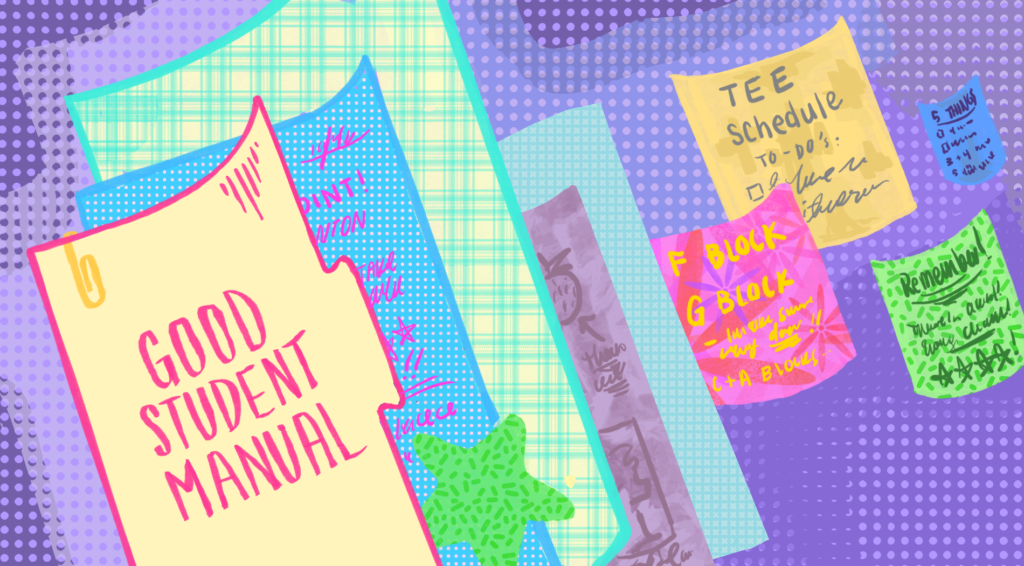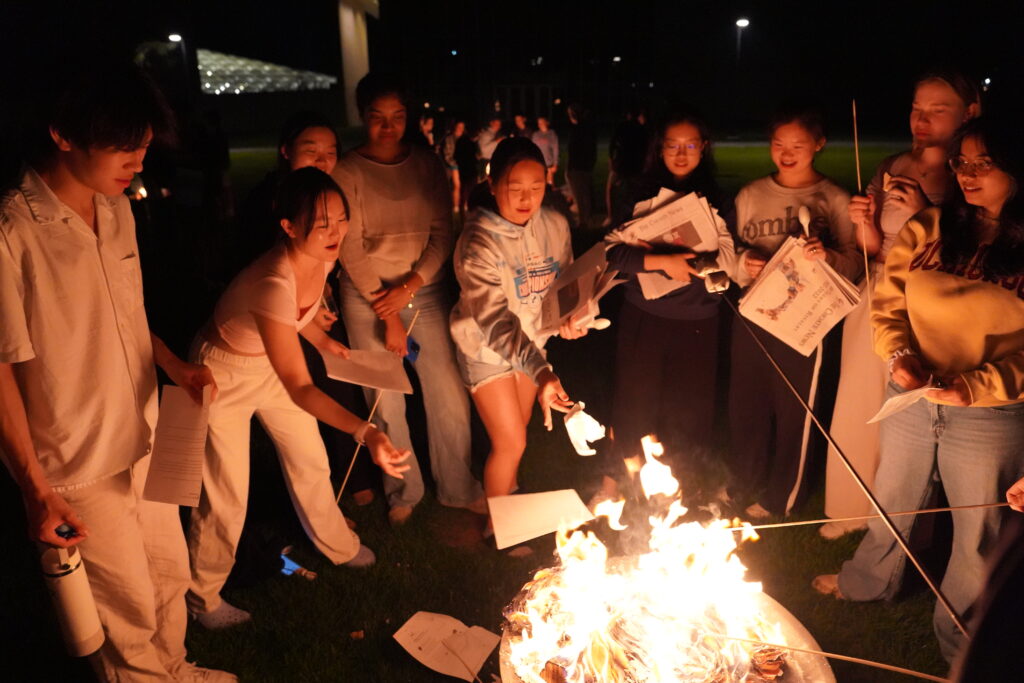These days, one can’t get far on Choate’s campus without encountering a screen of some sort. Every study room in the Student Activities Center contains a television. Choate-provided iPads bounce in the backpacks of each student. Even after the School’s days of remote learning, a virtual student display lingers next to every classroom’s white board. Now more than ever, the School confronts the task of sustainability as it adapts to technology’s all-encompassing nature — including its ability to bring the community together and its potential for harmful side effects.
Advancement
Since his arrival at Choate in 2015, Director of Academic Technology and HPRSS teacher Mr. Morgan Harris has been perhaps the School’s foremost advocate for the growing use of technology. “In my first few years here, I was all about finding new, different, exciting apps,” he said. However, when the pandemic forced teachers and students alike online in March of 2020, Mr. Harris had to adjust to a method of teaching where technology shaped the whole experience, not just a part of it.
“It was the most intense professional period of my entire life … we had to work with all the faculty and help them regardless of where they were and their comfort level and tell them, ‘Now you’re an online teacher.’ There was a tremendous amount of anxiety, confusion, and distress in the air,” he said. “But people figured it out.”
Now that the School is back to in-person learning — albeit still exceedingly dependent on technology — Mr. Harris strives to ensure that the handful of applications that community members use the most are both helpful and healthy. “If you approach [those apps] with a certain degree of intentionality, they can actually make a very positive learning experience for everyone while minimizing tech fatigue,” said Mr. Harris. For instance, he is currently working on centralizing the way teachers assign homework, just as communication has been streamlined with Microsoft Teams.
Adjustment
As Choate has continued to integrate technology into classrooms, especially during the pandemic, teachers have had to adjust. Ms. Julie Oxborough-Yankus, a science teacher who has been at Choate for over four decades, said, “When I came here, there weren’t even laptops. And although computers are a great tool, I miss the ability to touch things.”
Ms. Oxborough-Yankus uses only paper in her classroom — she’s one of a select few Choate teachers to still do so. Still, she said, “It’s not old-school.” She continued, “I just like seeing kids’ handwriting and being able to hand you back the paper … there’s an interaction that is missed with turning stuff in online and online work.”
However, the majority of teachers at Choate have transitioned to using technology in place of paper. Mr. Craig Johnson, a HPRSS teacher, uses technology in the classroom frequently, but he is still skeptical of technology’s effects on learning. “They’re interacting with an external device. It’s not like a textbook,” he said last month on the TECCast podcast, a recent outgrowth of Choate’s academic technology department. “At what point does technology impede or interfere with learning rather than enhance learning? I don’t know, to be honest.”
In addition, the potential for cheating looms large over the minds of teachers, tech-forward or otherwise. Ms. Oxborough said, “It was heartbreaking watching the rise in honor-code violations while we were online.” Even though all students are currently in-person, teachers have still had to adjust to using technology often — sometimes even for tests and quizzes — while balancing the temptation it brings for some students.
Addiction
Of course, Choate students’ technology use expands far beyond the class day — and so do the effects of that near-constant use, whether it be staying up late to finish an essay or just texting friends to meet at the SAC.
Sachi Mehra ’23 said, “We need to be on technology to do our homework, and it’s just so easy to open up another tab to watch Netflix or YouTube.” From there, it’s difficult to pull oneself away from the screen. “There’s just this constant urge to go on it, even when I’m around my friends,” said Mehra. “I’ll open my phone and mindlessly scroll, even though I have no idea what I’m looking at.”
Students emphasized that an even bigger issue occurs when the hours spent on devices evolve into a force that actively weighs on their wellbeing. Reagan Colton ’24 said, “There are benefits to technology, like easy communication and access to information super quickly, but when all my free time is also spent online to do homework or look through social media, it’s draining on my mental health.”
Indeed, technology-related struggles with mental health beyond screen-time addiction have become a major issue for young people around the world, particularly during pandemic-induced isolation. Colton said, “I found myself using my phone and computer way more [during the pandemic]. I kept comparing myself to edited images of perfection, which really took a hit to my mental health.”
Despite the challenges brought on by constant technology use, however, students believe that it’s here to stay. Colton said, “The main aspect of being a Choate student is being online.” Additionally, while acknowledging its negative implications, Jeremiah Olubowale ’25 said, “I feel like there’s no way that we can decrease technology usage a lot without affecting the way that this institution runs.”
***
Technology usage at Choate has accelerated under Covid-19, allowing students to continue learning even when they are thousands of miles away from campus. However, faculty and students have had to adjust to the unique challenges brought on by this shift. Technology addiction has also plagued the student body, along with social media-induced self-doubt. Despite these challenges, it is impossible to imagine Choate without technology.
But that does not mean that there is no way forward. This term, the Peer Educators ran a screen-time reduction challenge called “Screens Down, Eyes Up,” which aimed to encourage students to reflect on their time spent on technology. Initiatives like these attempt to make the best out of the privilege of the School’s easy access to the online world. Mr. Zachary Kafoglis, fourth-form dean and an adviser to the Peer Educators, hopes for students to “examine their relationship with their screens and make sure that it is a healthy one and consistent with their goals and expectations.”




